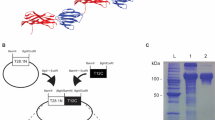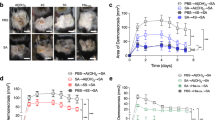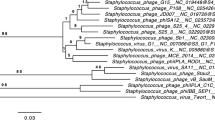Abstract
IN order to render staphylococcal toxic supernatants safe for use as active immunizing agents, it is customary to incubate them with formalin, in concentrations of 0.3–0.8 per cent at temperatures between 37° and 40° C. for periods of up to two weeks1,2.
This is a preview of subscription content, access via your institution
Access options
Subscribe to this journal
Receive 51 print issues and online access
$199.00 per year
only $3.90 per issue
Buy this article
- Purchase on Springer Link
- Instant access to full article PDF
Prices may be subject to local taxes which are calculated during checkout
Similar content being viewed by others
References
Dolman, C. E., J. Amer. Med. Assoc., 100, 1007 (1933).
Rouyer, M., Pillett, J., Orta, B., and Nicol, M. J., Ann. Inst. Pasteur, 92, 276 (1957).
Boake, W. C., J. Immunol., 76, 89 (1956).
Burnet, F. M., J. Path. and Bact., 34, 471 (1931).
Author information
Authors and Affiliations
Rights and permissions
About this article
Cite this article
FISHER, S. Loss of Immunizing Power of Staphylococcal Toxin during Routine Toxoiding with Formalin. Nature 180, 1479–1480 (1957). https://doi.org/10.1038/1801479b0
Issue Date:
DOI: https://doi.org/10.1038/1801479b0
This article is cited by
-
Influence of human milk on the development of antistaphylococcal immunity
Antonie van Leeuwenhoek (1970)
Comments
By submitting a comment you agree to abide by our Terms and Community Guidelines. If you find something abusive or that does not comply with our terms or guidelines please flag it as inappropriate.



